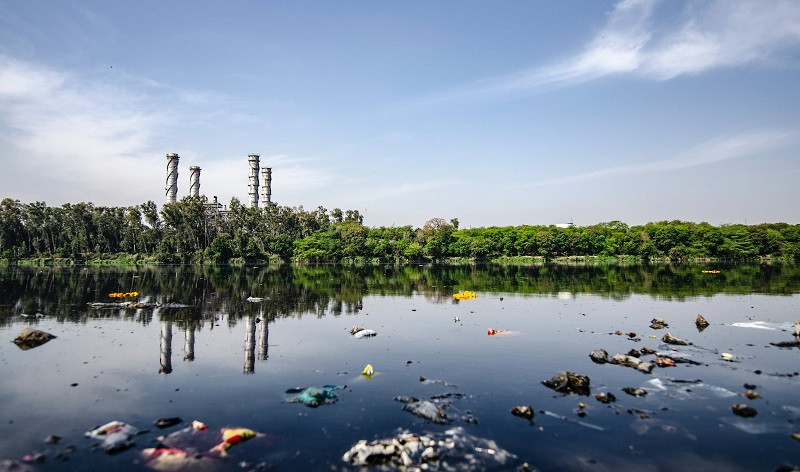
Excess anxiety It is one of the mental health disorders that most affects the daily well-being of millions of people around the world. This pathology is characterized by a feeling of generalized discomfort, anguish or suffering when faced with the arrival of a real or imagined danger.
Anxiety is also one of the most studied mental health disorders in the field of psychology and for years a wide variety of disorders have been classified based on it, such as phobias or generalized anxiety; All of these phenomena damage the quality of life in one way or another.
Now, one of the particularities of anxiety disorders is their flexibility and ability to take very diverse forms, also depending on the historical moment in which we find ourselves and the social and cultural development of human groups. In this sense, for some decades now the emergence has been detected, mainly in Western societies, of a new type of very specific problematic anxiety: ecoanxiety which is related to the uncertainty about the future in relation to biodiversity, life on earth and the possibility of living in uncontaminated spaces.
What is ecoanxiety?
This type of anxiety was identified at the end of the 90s, and designates those people who present a constant fear of suffering an environmental cataclysm in the coming years due to human action on climate and nature.
The last decades have been marked socially and politically by climate change, natural disasters caused by pollution, heat waves, droughts and all kinds of environmental problems that have alerted the lifestyle of people around the world, and that they are even already producing new migratory flows (for example, among those who live in areas of very low altitude and exposed to flooding).
Ecoanxiety affects more and more people and in general those most affected tend to be young boys and girls who grew up in abundant societies and see how a future of uncertainty, global unrest and worsening environmental changes awaits them.

Although it is not technically considered an anxiety disorder in the field of clinical psychology and does not appear in diagnostic manuals, ecoanxiety can be the way in which psychopathologies are expressed, such as generalized anxiety disorder, and generates harmful effects both in the mental and physical health of the people who suffer from it and should be treated by a psychology professional skilled.
Effects and symptoms of ecoanxiety
Below we will briefly see the main characteristics of ecoanxiety, as well as its impact both psychologically and physically on people who suffer from it.
1. Anxiety due to uncertainty
Uncertainty about the future is one of the main characteristics of the ecoanxiety phenomenon. It is a state of discomfort and suffering sustained over time due to the inability to know what an unknown and worrying future will bring us.
Since there are so many reasons to worry about the future these days, some people tend to develop symptoms of anxiety and saturation due to the number of problems that threaten them and the uncertainty of the future.
There are many people with eco-anxiety who already experience a very specific psychological affectation due to the symptoms of anxiety and stress generated by concern about the environment and the future of planet Earth.
As happens in most anxiety disorders, eco-anxiety progressively generates discomfort that affects the mental and psychological health of the affected person, if it is not treated in time.
The general feeling of frustration about the future of the planet, anxiety, anguish and discomfort Because of what is going to happen in the future, they end up decisively affecting the mental, psychological and emotional health of people who suffer from this condition.
2. Physical affectation
Associated with the psychological affectation, we also find a series of physical alterations that are the daily bread of many people with eco-anxiety.
It is evident that psychological saturation also ends up generating severe physical fatigue and discomfort that affect the person’s daily life and their normal development in any area of daily life.
3. Media saturation
The discomfort due to the environmental and climate crisis is also aggravated daily by excessive exposure to the media in our environment, where we can read, listen and see daily depressing news about the different environmental catastrophes that occur annually in the world.
This bad news saturation It ends up generating great discomfort and contributing to us feeling greater daily eco-anxiety.
4. Lack of resilience
Some people have resilience deficits, which prevent them from adapt correctly to the new environmental situation We live all over the world, so it is important to work on this skill.
Resilience is the ability to adapt to adversity, trauma or unpleasant situations that occur throughout our lives, and to emerge stronger and with more knowledge from all of them.
5. Hopelessness
In addition to uncertainty that generates discomfort and unease, hopelessness is also another characteristic of ecoanxiety, mainly due to consider that the situation is irreversible and that climate change advances inexorably without us being able to do anything about it.
This feeling of generalized hopelessness and frustration can also cause the development of depressive symptoms of all kinds, which in turn can aggravate the mental health of the person who suffers from them.
7. Fear of the changes that are coming
It is not necessary to suffer from eco-anxiety to know that in the future the human species will have to make some changes if it wants to ensure its survival as such.
Fears and anguish about the future also focus on the new ways of life that we will have to adopt to survive in the years to come and mainly on the possibility of emigrating.
Explain what it is, emphasizing that it is a form of excessive anxiety caused by uncertainty about what the future will be like, what will be lost in it, and what totally new ways of life we will have to adapt to.
Are you looking for psychotherapeutic support for anxiety?
If you want to start a psychotherapy process to manage and overcome anxiety, contact us.
In Psychology For We serve patients of all ages and intervene using the most effective psychotherapy strategies.








